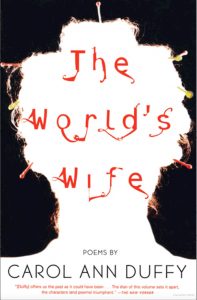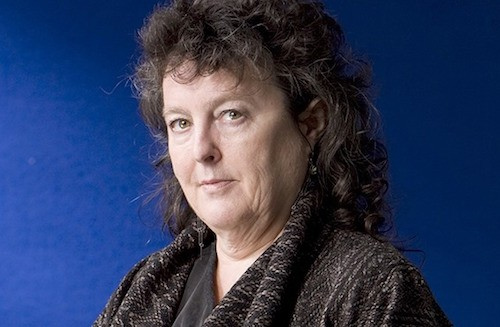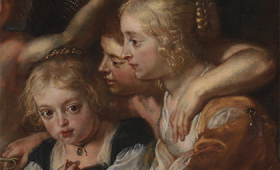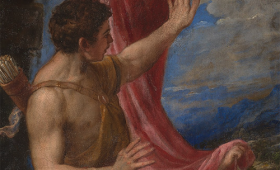Carol Ann Duffy’s (b. 1955) “Eurydice” appears as the twenty-fourth poem in her collection The World’s Wife, sidled between “Salome” and “the Kray Sisters”. Like her sisters in the collection, Duffy’s Eurydice vocalizes a silenced woman from literature and myth.

Duffy’s witty feminist critique introduces often unexpected nuance to stories we thought we knew already. Had we been wondering how Frau Freud felt in a household with a phallocentric worldview or what Mrs Rip Van Winkel was doing with the time the long slumber afforded her. What changed with his awakening? And what was threatening to change with Orpheus’ bold katabasis. Eurydice’s self-interest had already found voice long before Duffy expressed it in 1999. Her Eurydice is no more decisive than Gluck’s or Ruhl’s. And the narrative nuance is hardly unprecedented, though still sharply original. Eurydice herself effects her return to the languid dead. Remorseless for the separation she made happen by entreating Orpheus’ vanity, Eurydice now delivers from the other side some useful advice to her peers.
Duffy’s Eurydice speaks her entire poem, no narrator intruding. She begins by addressing her audience — the same group as Duffy’s readers: fellow sisters who suffer under male dominion.
Girls, I was dead and down
in the Underworld, a shade,
a shadow of my former self, nowhen. (Duffy, “Eurydice” 1-3)
Eurydice’s voice affects no formality of form nor lofty rhetorical tone. The pace is much like that of a stand-up comic or a participant in a self-help group. No regular rhyme scheme, no regular meter constrains the expressions. The diction is casual. Orpheus she calls “Big O.” She Who must not Be Named —i.e. Persephone or the Dread Queen of the Dead — is not named, but instead called “The woman in question”.
Eurydice perceives that to live her life with Orpheus once was and would have yet probably remained
to be trapped in his images, metaphors, similes,
octaves and sextets, quatrains and couplets,
elegies, limericks, villanelles,
histories, myths… (64-67)
This is the life of a written woman, Puella Scripta, the poetic muse. Living’s attraction must be less appealing for the written girls than for it is for their creative artists, especially because, by definition, poetic excellence always enhances and will never surmount the elegiac distance between them. Duffy’s Eurydice had finished mortality shadowed by a prolific and popular poet. And she enriches the irony of the Muse’s toil by her recalling how Orpheus’ fame came by the sweat of her own brow.
For the men, verse-wise, / Big O was the boy. Legendary.
Bollocks. (I’d done all the typing myself, / I should know.)
And given my time all over again, / rest assured that I’d rather speak for myself
than be Dearest, Beloved, Dark Lady, White Goddess, etc., etc.
In fact, girls, I’d rather be dead. (35-36, 45-50)
Duffy’s Eurydice characterizes Orpheus as cavalier and cock-sure. One might have expected the poet’s endeavor into the Great Beyond might have gotten him to shave. (109) Not unlike in Gluck, from Eurydice’s perspective in Duffy’s world, the whole thing might have gone down better had the poet tried to meet his departed wife on her own terms.
He’d been warned
That one look would lose me
For ever and ever.
So we walked, we walked.
Nobody talked. (74-78)
Duffy’s own voice is a welcome one in a world where Orpheus’ accomplishment seems still to outshine Eurydice’s longsuffering brilliance.



